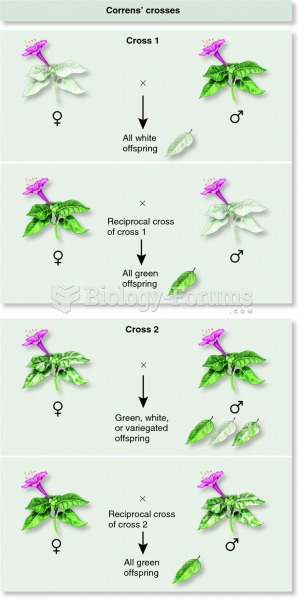|
|
|
When intravenous medications are involved in adverse drug events, their harmful effects may occur more rapidly, and be more severe than errors with oral medications. This is due to the direct administration into the bloodstream.
Fungal nail infections account for up to 30% of all skin infections. They affect 5% of the general population—mostly people over the age of 70.
Though methadone is often used to treat dependency on other opioids, the drug itself can be abused. Crushing or snorting methadone can achieve the opiate "rush" desired by addicts. Improper use such as these can lead to a dangerous dependency on methadone. This drug now accounts for nearly one-third of opioid-related deaths.
Thyroid conditions may make getting pregnant impossible.
Less than one of every three adults with high LDL cholesterol has the condition under control. Only 48.1% with the condition are being treated for it.
 Details of plant population biology from repeat photography: (a) saguaro cactus in MacDougal Crater,
Details of plant population biology from repeat photography: (a) saguaro cactus in MacDougal Crater,
 Daniel Burnham’s Flatiron Building (1902) was one of the first to use steel girders to hold up the b
Daniel Burnham’s Flatiron Building (1902) was one of the first to use steel girders to hold up the b





